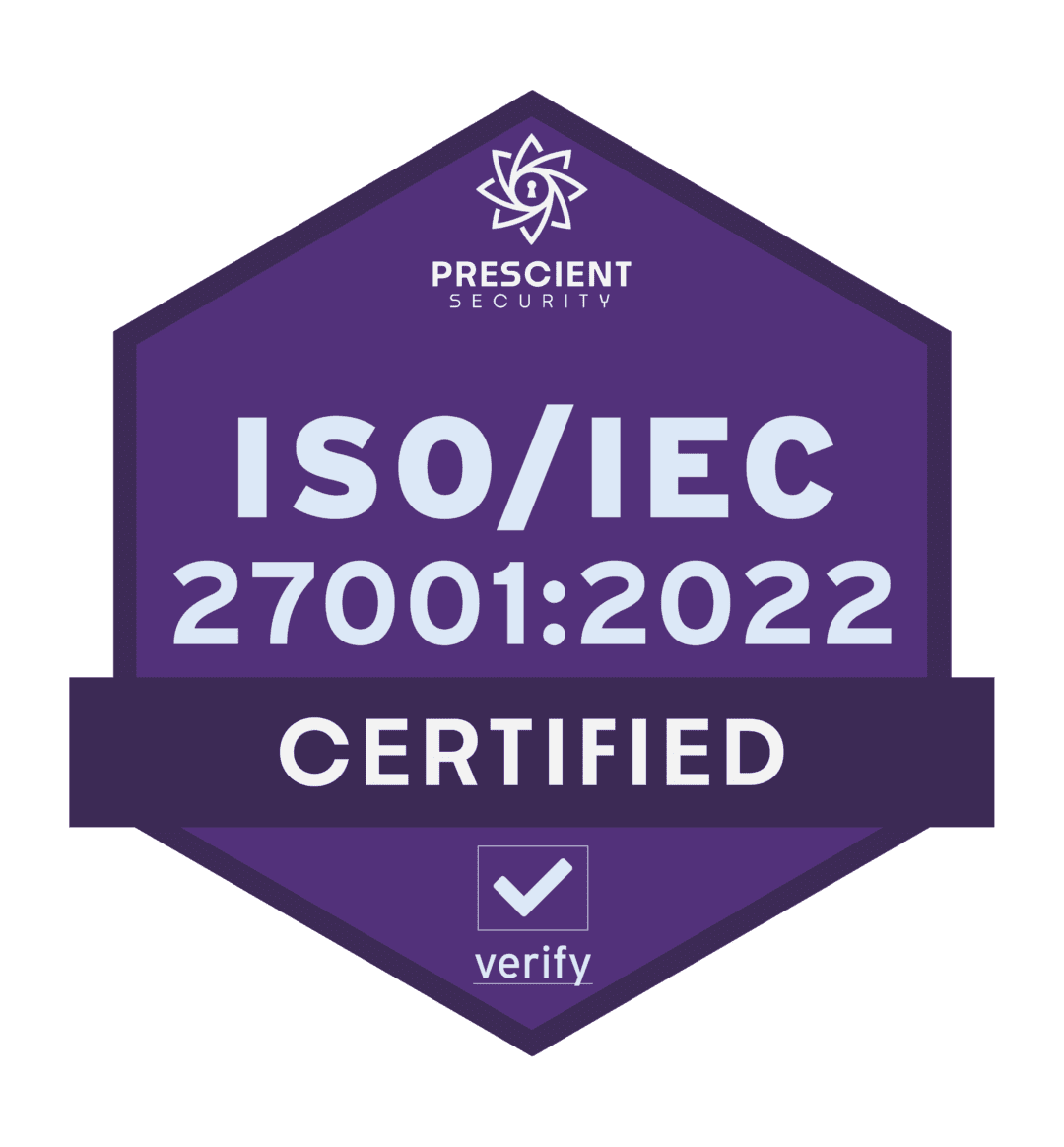Sam Parr
How the the founder of one of the most successful email newsletter businesses got his start. He has big plans and an incredible vision for where he’s taking his business. This is Sam Parr’s story about Pushing Send.
Sam is the founder & CEO of The Hustle – one of America’s fastest-growing media companies with a focus on millennials, tech, and culture. He also runs Hustle Con, an annual conference in San Francisco that showcases non-technical startup founders.
Key Points From This Episode:
- Sam Parnell talks about HustleCon and when he determined email was the path forward.
- He describes his business like a pirate ship and how he can go by his own rules and each subscriber is a little wind in the ship’s sail.
- Sam discusses that people can find success doing what he has done with hard work, talent and that you’ve got to be good at your craft and the work will be a lot harder than you think.
- He shares his vision from early on and how it has changed over time and continues to be exciting.
- Cold emails allowed Sam to raise 1 million dollars to start his own company and he has so many incredible friends and business contacts through sending cold emails.
- Write like you talk is how The Hustle got it’s tone and subsequent success of the company and its writers.
Tweetables:
“What we and I have is a pirate ship and I don’t care about anyone not on the ship. I mean, I want people who agree with our ethos to join our ship. I only care about my subscribers and pleasing them and making them happy and providing value to them.” – @TheSamParr
“We can say whatever we want, we could do whatever we want and our people are going to hear us. And I think that that’s really invigorating and it makes me feel wonderful.” – @TheSamParr
“Therefore there’s not that many people who think they’re talented, who aren’t actually talented, but because of the nature of it is everyone thinks like it’s so easy and I’m like, it’s simple, but it’s not easy.” – @TheSamParr
“The vision from day one was always to build up a massive email list of entrepreneurial type folks, provide value to them and get them to love us and trust us.” – @TheSamParr
“I raised a million dollars to start my company will almost 100% of it came from a cold email. So I can attribute of million dollars to that as well as the hopefully tens of millions of dollars that we’ve turned that $1 million into.” – @TheSamParr
Links Mentioned in Today’s Episode:
Bryan Kelly: LinkedIn
Episode Transcript
Sam Parr:
So the way that our company works is I typically am the first do everything. And then once I can kind of prove that it works, a team comes in and makes it great and scales it. So with the trends product, I wrote every single word that for the first handful of months, I made the sales page, I made the website. I literally did all of it and it’s not bragging because it wasn’t necessarily good, but I did all of it. And then a team comes in and they make it better. So I have close to zero impact on any of the content at this point, but I did just hire a, or I’m hiring a CEO and once that person comes in charge, I’m going to go back to content,
Bryan Kelly:
From rasa.io, the free tool for sending smarter and better email newsletters. This is Pushing Send a show featuring people who send emails their subscribers actually want to read. I’m Bryan Kelly, and on today’s show, we’ll hear from the founder of one of the most successful email newsletter businesses of the past two decades. Here’s Sam Parr talking about when his massively popular newsletter called The Hustle got started. You began your business with an event called The Hustle Con and then doubled down on email in 2016. So can you describe the moment you realized email was the path forward?
Sam Parr:
Yeah, so like we started as this event and it made like 300K maybe in the first year. And I’m like, it was mostly profit cause I didn’t spend any money and I hated conferences like as a business, I didn’t like it. And I knew that wasn’t going to be big. And I was in Panera with my friend Jack Smith and we were sitting down mapping out business models. I’m like, I have this email list of like 10 or 20,000 people who read the email because I would use the email list as a way to promote the conference. And I would just write stories. And then people came to the conference website and gave me their email. And a lot of them, the reason that got to tens of thousands subscribers for a conference email list was because they heard that my emails were kind of funny or interesting or good. And I was like, you know what? This email thing is interesting. I read about this one company called Thrillist and I knew about Groupon. They got big through email. You think something’s there. And so we just got out of pen and paper and I’m like, Hmm, if I get a million people to subscribe and half of them open and I send an email to them six days a week, if you add that up, that’s something like 20 million impressions a month of high quality people. And I was like, huh, I knew I wanted to create a media company like a media, like a content business. Cause that’s what my skillset was in. But I knew I didn’t want to build a, like a website, like a blog because I knew traffic would go, it would be hard to get. We were sitting on doing this math and I was like, what the heck? I should do that. And that’s kinda, it was like, it just kind of hit all at once.
Bryan Kelly:
Yeah. Do you Think that you would’ve come to that same conclusion if you had 200 people on your list instead of, you know, over 10,000?
Sam Parr:
Well, yeah, because I did it already because I knew for a fact that email was the most powerful channel. And so The Hustle con website, you had to enter your email to see any type of like Hustlecon.com was just a sales page. It described what the conference was. But when you went there to that website, it was like, you know, The Hustle, con’s a conference for these types of people, enter your email to learn about it. The reason I did that was because I knew that any amount of email is really important. And so I started with zero people and got the 10,000 and 10,000 people made me $300,000 in profit in one year. So yeah, I knew email was the most powerful channel there was. But when I was doing the math, I was like, yeah, I should start a blog. And I was like, wait, wait, wait, wait, wait, wait, wait, I have this email thing. It’s kind of going well, it’s hard to figure out how we’re going to get 5 million subscribers. But like, is that conceivable that I can get 5 million subscribers? I think so. I think that makes sense when you model it out, you’re like, it might take five years, but I think I can do it. And that’s kinda how we did it.
Bryan Kelly:
How has the act of solely focusing on email and not so much the live event changed your business and your life?
Sam Parr:
You know, that’s a good question. I don’t think anyone has asked that. And I want to give, uh, an honest answer, even though if it sounds kind of douchey, but the biggest thing it’s done is it’s created a lot of wealth. It’s a very lucrative business. So that’s the biggest and probably most obvious thing is that, you know, if you saw our competitor just sold for $75 million, we’re not selling yet, but you can imagine what type of money we’re talking about. So it’s a very valuable business. So that’s been the main thing and unintended consequence, which I don’t particularly like our goal is to be popular. So the more people who know about us, that’s good. An unintended consequence is that my name gets associated with it. And I become a little bit well known more than I would like to be. And that’s kind of an odd thing, but it’s like flattering and cool, but it’s an unintended thing, a logistical thing that’s kind of small, which is I get like a thousand emails a day and that honestly stresses me out. I hate it. So that sucks because when we first started, I would send the emails from my address. And so I still get tons of replies What I feel like I have. And when I say I, I mean like the company and the team, but like what we and I have is a pirate ship. And I don’t care about anyone, not on the ship. I mean, I want people who agree with our ethos to join our ship. But if you’re not on it, I don’t care about you. I only care about my subscribers and pleasing them and making them happy and providing value to them. And it’s so good that all I have to do is hit a button and reach most all of them. That’s kind of addicting because it’s like I say, we’re a pirate ship. And every subscriber that we get is a little bit of wind in our sails. We don’t have to obey anyone’s rules. Really. We don’t, I mean a little bit, but we definitely want to make G-mail happy, but like we can say whatever we want, we could do whatever we want and our people are going to hear us. And I think that that’s really invigorating and it makes me feel wonderful.
Bryan Kelly:
For someone looking to build a media business today, would you recommend a similar path? Like I’m sure people are asking you this all the time. Like they want to know how you’ve done it
Sam Parr:
I’m basically in the business of getting attention, building trust, providing value via the written word. And because the barrier to entry is so low, there’s a massive amount of people who think they can do it, but they’re not talented. Or, and this is fixable. They’re not skilled at it. And you have to have some amount of skill. You’ve got to have some amount of talent in order to perfect your craft. And you know, because it’s not like, like computer engineering when with engineering, like very few people actually know how to do it. Therefore there’s not that many people who think they’re talented, who aren’t actually talented, but because of the nature of it is everyone thinks like it’s so easy and I’m like, it’s simple, but it’s not easy. And I try to tell them, yeah, you definitely can do it. But what you have to realize is that you’re creating content every single day or every week or something like that. And in order to do it right, it is very, very, very, very hard. It takes a lot of physical effort. It takes a lot of creativity and it takes, you gotta be good at your craft. And the question I get asked on a regular basis does what industry should I start a newsletter in? And my reply is sometimes I’d try to give practical advice. And I say like, prop choose like a B2B vertical because you’ll make more money. But the answer is actually something you care about and can write about on a consistent basis. And then the second answer is any industry. It doesn’t matter. It doesn’t really matter if you’re talented, you’ll make it work. If you’re not talented, it’s going to suck no matter what. So yeah, obviously like I’m going to use these guys as a, The Morning Brew. One of our, they’re not like our competitors anymore, but they’re like in the same space, our business is like the same size as that. So to build like a $50- $70 million business, like if it were that easy, everyone would do it now. It definitely was a lot of luck. Like we timed it well, and that was purely by, I mean, you know, there’s luck involved, but you got to write every day for 340 days a year. And that is really hard. It is so hard. Like imagine sitting in front of you have a blank screen every single day, six days a week, trying to figure that out. It’s so challenging and it’s simple, but it’s a challenge, you know? So my answer is you guys just want to copy what we did. Yeah. It’ll work. It’ll work for the next 20 years. It’s going to be a pretty, a pretty reliable, consistent way to make money until you die or until something until email goes away. So yeah, sure. Copy it. But just know that it is you’re going to work really hard, harder than you harder than you think.
Bryan Kelly:
So talking about vision, did you have to stumble your way into discovering that for The Hustle or did you know what you wanted right from the start? The vision was there from the beginning, but it was murky. And as I’ve gone along the journey, it’s gotten less murky and I’ve gotten more confident. So the vision from day one was always to build up a massive email list of entrepreneurial type folks, provide value to them and get them to love us. And trust us, make early profits from advertising and then create more products and services for that group of people. And those products and services would be the true value creator. So that’s always been the plan, but that’s definitely kind of a murky plan. And the plan was also, I wanted to help people start more companies and I wanted to be involved. And I wanted to create a, an environment at my company where people have the option to jump around from project to project. And there’s just a lot of interesting work to do. And a lot of interesting people who want to work here. So that’s always been the same and that’s a little bit less murky, but yeah, early on, I was like, I’m going to, I’m going to build this email list and I’m gonna get it to like 20 or 30 million in sales. And along the way, I’m gonna make more stuff. I have no idea what to make more stuff was going to be. I kind of knew how we were going to get to 20 or 30 million in revenue, but I didn’t exactly know. And every single year it opens up to like, Oh, that’s the way I got to do it. The products that we’re going to sell, which Trends is our first one, we just made that up a year ago. So I would say that that was not part of the plan. I didn’t expect that to happen. Yeah. It’s opened up like what excites me is that we can invest or start a network of companies using our profit and then, and using our research for trends to like guide those decisions and then tell the, all The Hustle about it and use that as content. And that’s what most excites me. And I don’t think that that vision was truly there until recently.
Bryan Kelly:
Was that there’s a kernel idea. When you began thinking about launching the paid subscription for your trends newsletter?
Sam Parr:
I would say I do a pretty good job from the beginning. I’m like, all right, we’re going to do this. We’re going to do this. And then in 10 years, it’s going to turn into this, this and this. So we have to make sure we execute this way. I’m really good at coming up with those plans early on. What I tell people all the time is I’m really good at steps one and steps two. And then knowing what that steps to are going to eventually lead us to steps nine and 10. And I know what nine and 10 is all the steps in between. I don’t pay attention to, and I’m admittedly very bad at them. And what that means is like operating the business on a daily basis. I suck at that. And what I knew was as long as I can be free to do steps ones and twos forever, I’m going to be able to figure out what those eights and nines and tens are and I’m, and I’m likely going to be able to hit them so long as I have the right people who can actually operate the companies. And that was obvious, probably starting two years ago. I didn’t know that was my skill set until about two years ago,
Bryan Kelly:
When we come back, Sam shares how cold email played a massive role in building his email newsletter. Plus he describes some general insights and observations about email that he’s learned over the years. I’m Bryan Kelly, and you’re listening to Pushing Send from rasa.io.
rasa.io:
Creating email newsletters takes a lot of time. You might curate articles, write content, tweak your template, and look up metrics and not to mention you’re probably doing all of this once a week. well at rasa.io, we said enough and built a free tool to simplify the process, which saves you time. It also uses AI to personalize emails for each subscriber based on their interests. That means they get stuff they like to read. Want to see how it works? Visit www.rasa.io and click how it works.
Bryan Kelly:
Welcome back to Pushing Send. I’m Bryan Kelly. Sam Parr has a big vision for what he wants to do with his business using email and a critical piece of what he’s accomplished so far can be traced back to his skills, sending cold emails? Here’s Sam telling me a little bit about this, as you reflect on the impact email has had on your business and life, where does cold email fit into all of that? Like not a lot of people know that you have an extensive amount of expertise with it. So tell me about that.
Sam Parr:
Well, it’s really about it all roots in persuasion. So what I learned how to do at a young age and it’s because I, I studied, it was how to persuade people into doing stuff. Then I was like, Oh, copywriting’s awesome. And I learned how to be a copywriter. And then I learned, wait a minute, you can like, guess all these people’s email and you can just call it, like, isn’t it crazy that like jay@amazon.com, I think it is whatever it is. Like, imagine if like in the sixties everyone’s number was still in the phone listing or the phone book. That’s how it is with email. And I was like, God, that’s pretty nuts. Like if I email this person enough. And like, if I bothered them so much and my copy is persuasive and good, I’m going to kill it, I’m going to crush it. And so once I kind of put that together, I’m like, yeah, I’m cold emailing everyone. So anytime I saw someone interesting, no matter how popular they were, I would just email them. And then I would follow up like 30 times until like, in some cases, like a hundred times until they said no, or talk to me. And I just would do that constantly. And I still do it a little bit, but like, that was like, my whole career was due to that. And I mean, I know like when I say no, like I’ve exchanged emails and I hope they remembered me, but I know like everyone, which is kind of cool,
Bryan Kelly:
What’s an example of a cold email that opened a door for you.
Sam Parr:
I raised a million dollars to start my company will almost 100% of it came from a cold email. So I can attribute of million dollars to that as well as the hopefully tens of millions of dollars that we’ve turned that $1 million into. So yeah, I can attribute that to cold email. I mean, I had to do a good job talking to them and convincing them that I’m interesting once we met in person, but it all started with a cold email and many of these people are my best friends. So Tim Ferriss invested in us and we, uh, that was a cold outreach type of thing. The founder of NerdWallet who maybe he’s a billionaire he’s up there. That was from a cold email. Rameet Sachdev. Who’s a good friend of mine. It’s one of my investors and who I call for advice. That was a cold email. I mean, everything’s been a cold email, like in terms of my career. So few weeks ago, and I know I’m, I’m, name-dropping so excuse me for kind of pompous, but my wife and I went to a conference and we saw the founder of Pandora, Tim Westergren there, and I had cold emailed him a bunch and he knew me and I was like, Tim, what’s going on, man? And he’s like, Oh Sam, how are you? And we like get dinner now and we’re homies and we’re buddies. And I can be like, Tim, you know, I’m going through this hard period in my business. How did you overcome this at Pandora? And it’s such a valuable experience. And by the way, I emailed him literally 50 times before he replied, it took 50 times and maybe a hundred over two years anyway, we’re homies now. And like the fact that I can call him a friend is pretty great because he’s so more successful than I am. And it’s like, I just have a guy like that on text messaging. And that’s pretty amazing.
Bryan Kelly:
Yeah. That is pretty amazing. So shifting gears a bit, do you see innovation in email technology coming along? You know, it hasn’t evolved much in the last 20 or 30 years.
Sam Parr:
I’m so fascinated by that. Yeah. I think that like, you need to be able to buy stuff in the email and watch movies in an email that needs to change and that’s going to be awesome. Yeah.
Bryan Kelly:
Yeah. There’s some cool things like amp for email, which I don’t know too much about
Sam Parr:
Are tinkering with it. Yeah. We’re tinkering with it. I think that’s bad-ass I like that.
Bryan Kelly:
Is that something you see on the horizon or is there a ton of work that needs to happen first?
Sam Parr:
Yeah, there’s a ton of work. I think there’s probably only two ways that’s going to happen is if a new email provider comes out or if Gmail changes and one of those two things happened, it should be here right away. And yeah, I think it will eventually,
Bryan Kelly:
What do you say to people issuing warnings right now that there’s going to be a backlash against email since it’s been on this rise of popularity the last few years?
Sam Parr:
Yeah. That’s stupid. I don’t know what biases it would be, but that’s definitely like a, you know, it’s like when people say like, you know, today’s kids nowadays, they just don’t care. It’s like, Oh my God, everyone has always said that forever. And uh, no, I don’t, I don’t, I don’t even come close to fearing it now will email change probably. But do you know what the biggest change has been to email and like the last 30 years, like the promo tab. So like, yeah, it might change, but it hasn’t for 30 years and like everything in technology changes and that hasn’t, so it might, it might not, I mean, it will evolve, but it’s been pretty stable. So like, if history is an indicator of what the future holds, it’s going to be slow to evolve.
Bryan Kelly:
Now the impact of direct response copywriting on you personally has helped craft the trademark conversational tone that The Hustle newsletter is known for. But how have there been clashes or have there been any clashes behind the scenes with the professional journalists you’ve hired over there?
Sam Parr:
Yes. There has been a clash, a lot of journalists that work here failed and we failed them and they failed us a little bit and we had to fire them. And the best people we have are not journalists, but they’re smart people and who can write well and have a good voice. So that’s like the perfect employee. Our head of content is a traditional journalist and he is good at managing and wrangling, but our best creators are not journalists. Um, and we’ve had a lot and it hasn’t worked out. So how we’ve done it. And I would say it wasn’t really hard. Like, I don’t understand why people just don’t do that all the time. But then on the flip side it’s like, well, I actually worked really hard at it. Like, it seemed very obvious. I’m like this isn’t like rocket science. I don’t know why you guys are talking like, like, I don’t understand why people who write on like, who talk on LinkedIn. Like I fetched paper. That’s one way to say it. The other way that people write is like, I procured this and executed this. And then, you know, like all the buzzwords I’m like, why are you talking like that? You don’t talk like that when you’re just telling me what to do. And I always thought that that was weird. So I think that it was kind of obvious, but the way that we learned how to write or I learned how to write was I would take famous novels and famous pieces of copywriting. And I would just copy them word for word. So if I want to write like Stephen King, I’m certainly not as good as he is, but I can kind of replicate his voice a little bit. And I just kind of figured out which I would try on different voices. You know, it’s kind of like trying on like playing different songs.
Sam Parr:
I would figure out which type of genre appealed to me and I thought would appeal to the audience. And I just kinda ran with it. You know, if you read like David Ogilvy, I’m certainly not as good as him, but our voice can kind of be similar, like in a conversational tone. And that’s kind of like who we stole it from. However, I’m speaking now, that’s how we write. So I’m told that when people read the email, they’re like, they can hear my voice speaking. Or if they read some of my other work, they can hear me speaking. And I always say great, because we always tell our people write like you talk or in my case, I write, like I talk. Yeah.
Bryan Kelly:
I absolutely love that and agree with, with the approach, it helps foster a personal connection so much more than robotic or stilted language that oftentimes we see in business circles,
Sam Parr:
Which is weird by the way, like maybe not this president, but past presidents, the president is like one of the most sophisticated positions in the, in the world. You have to be, you know, a politician, you have to be, um, politically correct a little bit. You have to be, you have to please everyone. And you can’t say anything too crazy. And yet, if you heard Obama, if he met someone, he’d be like, what’s going on, brother? How are you? It’s great to see you. You can be casual and conversational and yet sophisticated and smart. They’re not opposite. If I met the Pope, I would be like, sir, you are awesome. I’m so happy that you exist. And it’s lovely to meet you. Like, you know, and that’s like respectful yet conversational. And I think more people should write like that.
Bryan Kelly:
Sam has an unbelievable story that accompanies the success of The Hustle. And it was great to hear it straight from him directly. Now coming up on our next episode, we’ll talk with business author and tastemaker Verne Harnish. Who’s been using email to engage his audience of fast-growth business owners and executives for the past two decades. You won’t want to miss what Vern tells me during this conversation. So if you’re listening to pushing sin for the first time, be sure to subscribe at Apple podcasts or wherever you’re listening. So you don’t miss an episode. And if you’ve enjoyed what you’ve heard, I’d encourage you to check out a few other episodes while you’re here. Lastly, leaving a review will help us share these stories with others, just like yourself. Thanks in advance for doing that. I’m Brian Kelly, and you’ve been listening to Pushing Send from rasa.io.











